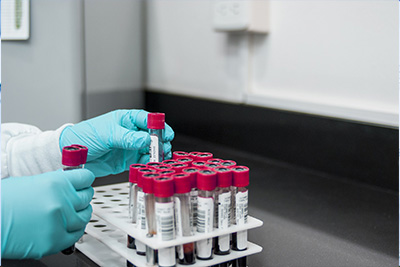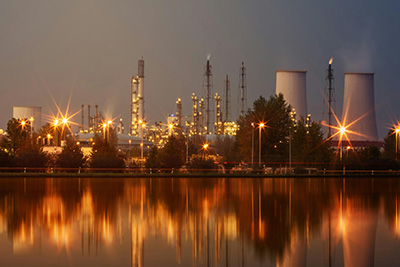-
![The Process Flow o···]() 2024-12-07 The Process Flow of Octyltin Compoun···
2024-12-07 The Process Flow of Octyltin Compoun···The manufacturing process of octyltin compounds involves several critical steps focused on quality and environmental control. Initially, raw materials are carefully selected and purified to ensure high-quality output. The reaction phase is closely monitored to maintain optimal conditions, followed by a series of purification processes including distillation and filtration. Throughout the process, stringent quality checks are conducted to meet regulatory standards. Additionally, environmental controls are implemented to minimize waste and emissions, employing techniques such as recycling solvents and treating effluents before disposal. This comprehensive approach ensures both product efficacy and minimal ecological impact.
read more > -
![Environmental Regu···]() 2024-12-07 Environmental Regulations and Compli···
2024-12-07 Environmental Regulations and Compli···The production of methyltin and dimethyltin involves stringent environmental regulations aimed at minimizing toxic emissions and waste. Companies must comply with these regulations to ensure safe handling, storage, and disposal processes. Regular monitoring and reporting of chemical releases are crucial for maintaining compliance. These measures not only protect the environment but also safeguard public health and worker safety. Failure to adhere to these standards can result in significant penalties and damage to company reputation.
read more > -
![Technological Adva···]() 2024-12-07 Technological Advancements in Methyl···
2024-12-07 Technological Advancements in Methyl···Recent technological advancements have significantly enhanced the synthesis of methyltin compounds, crucial for improving the performance of PVC materials. These innovations focus on developing more efficient and environmentally friendly processes. Key improvements include optimized catalyst systems and novel reaction pathways, which increase yield and purity while reducing waste and energy consumption. The enhanced methyltin compounds are particularly beneficial for applications requiring superior thermal stability and resistance in PVC products, such as pipes, flooring, and profiles. These developments are expected to drive growth in the PVC market by enabling manufacturers to produce higher quality materials with reduced environmental impact.
read more > -
![A Comparative Stud···]() 2024-12-07 A Comparative Study on Methyltin and···
2024-12-07 A Comparative Study on Methyltin and···This study compares methyltin and butyltin compounds used in the heat stabilization of polyvinyl chloride (PVC). It evaluates their effectiveness, environmental impact, and potential health risks. The findings indicate that while both compounds significantly enhance PVC's thermal stability, butyltin compounds exhibit superior performance. However, concerns over their higher toxicity and persistence in the environment suggest a need for more sustainable alternatives. The research underscores the importance of balancing efficacy with ecological considerations in industrial applications.
read more > -
![Octyltin Manufactu···]() 2024-12-07 Octyltin Manufacturing Processes and···
2024-12-07 Octyltin Manufacturing Processes and···The article explores the manufacturing processes of octyltin compounds, which play a crucial role in enhancing the performance of advanced Polyvinyl Chloride (PVC) applications. These compounds are utilized as stabilizers, offering significant improvements in thermal stability and durability. The synthesis methods discussed include oxidation, hydrolysis, and condensation reactions, each contributing to the production of effective octyltin compounds. Their application in PVC not only extends the material's lifespan but also broadens its usage in sectors such as construction, automotive, and electronics, underscoring their importance in modern industrial applications.
read more > -
![Dimethyltin as a C···]() 2024-12-07 Dimethyltin as a Core Stabilizer in ···
2024-12-07 Dimethyltin as a Core Stabilizer in ···Dimethyltin is emerging as a crucial core stabilizer in the production of polyvinyl chloride (PVC), enhancing its thermal stability and longevity. Current techniques involve incorporating dimethyltin into PVC formulations to mitigate degradation during processing and use. This method has proven effective, but challenges remain regarding environmental impact and cost-efficiency. Future trends focus on optimizing these stabilizers to meet stringent regulatory standards while maintaining performance. Research is also directed towards developing eco-friendly alternatives and improving synthesis processes for better sustainability and economic viability.
read more > -
![An Overview of Mer···]() 2024-12-07 An Overview of Mercaptide Tin Techno···
2024-12-07 An Overview of Mercaptide Tin Techno···Mercaptide tin technology represents a significant advancement in the field of industrial polymer stabilization. These compounds, characterized by their sulfur-containing moiety, offer enhanced thermal stability and UV resistance to polymers. The mechanism involves the formation of protective layers that shield polymers from oxidative degradation and photo-degradation. Mercaptide tin stabilizers are widely used in various applications including plastics, coatings, and elastomers. Their efficiency and compatibility with different polymer types make them indispensable in modern manufacturing processes.
read more > -
![Butyltin Compound ···]() 2024-12-07 Butyltin Compound Production: Safety···
2024-12-07 Butyltin Compound Production: Safety···The production of butyltin compounds requires careful consideration of safety, efficiency, and environmental compliance. Ensuring worker safety involves implementing strict protocols to handle these toxic substances. Enhancing efficiency can be achieved through optimized manufacturing processes and advanced catalytic techniques. Compliance with environmental regulations is crucial to minimize ecological impact, necessitating the use of abatement technologies and waste management strategies. Overall, a balanced approach that integrates these factors is essential for sustainable butyltin compound production.
read more > -
![Methyltin and Its ···]() 2024-12-07 Methyltin and Its Role in PVC Therma···
2024-12-07 Methyltin and Its Role in PVC Therma···Methyltin compounds play a crucial role in enhancing the thermal stability of polyvinyl chloride (PVC). Recent advancements in production techniques have led to more efficient and environmentally friendly methods for synthesizing these compounds. These innovations not only improve the performance of methyltin stabilizers in PVC applications but also reduce their ecological impact. The improved thermal stability ensures longer lifespan and better quality of PVC products, making methyltin an essential component in modern industrial processes.
read more >






